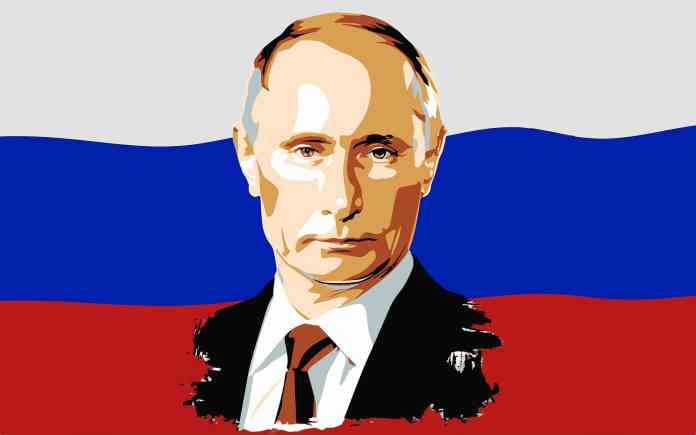
The Russia Report and cyber interference
Following the long-awaited publication of the Russia Report, Ray Walsh explores what it says, what it means and where we go next
Election hacking has been in the public psyche for a number of years, with widespread rumours of Russian interference in the 2016 US Presidential Election, the 2017 French Presidential Election, and most recently, in the UK’s 2019 General Election. The NSA has been forthcoming with allegations about Russian cyber-offenses for years, but now the UK is beginning to formally point the finger too.
Prior to this report, the UK had shied away from formally attributing cyber warfare activities to the Kremlin. Back in 2010, the UK’s Intelligence and Security Committee was asked to redact references to Russia as a leading perpetrator of cyber attacks, for fear of the diplomatic repercussions it might provoke.
Even in the last few months, it was not clear whether the Russia report would be released. Not just because of international relations, but because of the loss of trust it might create regarding recent elections and the incumbent government.
After months of demand, however, the Intelligence and Security Committee (ISC) has finally brought the report to light. In its pages, Russia is exposed as an active aggressor that seeks to target the uppermost echelons of Britain’s democracy.
The report provides ample evidence that the government has been purposefully keeping schtum about the Kremlin’s threat to Britain’s democracy. The report also reveals that Russia has been engaging in high profile attacks on agencies like the Foreign and Commonwealth Office and the Defence Science and Technology Laboratory. It also clearly portrays Russia as a highly capable cyber-actor that has been purposefully targeting the UK and its elections using tactical online disinformation campaigns.
The report suggests that the UK government has known about these capabilities since at least 2016. It states that in 2018, the ISC recommended that the government should use diplomatic relationships to begin formally developing international protocols for attributing and reacting to Russian cyber attacks. Those recommendations were ignored, ostensibly because the government was sympathetic towards Russian oligarchs’ exploitation of the UK’s investor Visa scheme for the purposes of using London as a ‘laundromat.’
The fact that the government has been squirreling this information away is worrying and there is no doubt that we need to start asking some very serious questions. If Russia has been hacking democratic processes, we need to know whether this affected the results of the General Election, and, more importantly, the Brexit referendum.
After all, these are tumultuous times. Even without the pandemic and the recession it will leave in its wake, the repercussions of Brexit are going to be significant. It threatens to remove a vital layer of legislative oversight, lead to higher levels of government surveillance, cause the lowering of food standards, higher prices on imported goods, an increase in air pollution, and potentially the loss of basic human rights. To find out that a Russian interference campaign influenced the outcome of such an important referendum would be an almost impossible pill to swallow.
The report speaks of the Kremlin’s view towards international relations as a ‘zero-sum game’ in which any actions it can take to ‘damage the West are fundamentally good for Russia’. Chaos and adversity is the aim of the game, and Russia is achieving those ambitions using what the report refers to as heavily resourced, disproportionately large, and powerful intelligence services.
The reasonable expectation resulting from the Russia report would be to look closely at how we can prevent this type of hacking from occurring in future. The report states that the UK needs to better coordinate its intelligence agencies, because they are currently failing to properly combat the Russian offensive. The report also suggests that the UK should aim for better working relationships with international allies to clearly attribute cyber blame and force Russia to face repercussions. But what does this all actually mean?
According to the government, despite the overwhelming evidence contained within the report, there is no need to carry out an inquiry regarding Russian interference in the EU referendum. ISC member and member of Parliament, Stewart Hosie, has expressed astonishment that the government is refusing to look into it; but it is hardly surprising, considering that Prime Minister Boris Johnson is a passionate Brexiteer accused of lying to the nation to make it happen.
So, what benefits can we expect?
Instead of acting on the skepticism created by the report regarding Brexit, the government seems intent on using the report as justification to roll out even more invasive surveillance powers for British security and intelligence services. So, thanks to Russia, we can expect new and magnificent ways for the government to snoop on everyone.
In addition, the government will almost certainly act on the report’s recommendation for a need to create better and faster ways to compel online social media companies to take down information that has been disseminated as part of covert, hostile, state sponsored operations (or potentially, just anything it disagrees with).
So, to sum it all up, the Russians have been hacking us, fomenting chaos, and potentially leading us towards a Brexit they know will be a disaster for our economy, all while exploiting London to launder their money. And as a result, the Tories are going to ramp up their surveillance capabilities and improve their capacity to enforce censorship on the British public.
And, don’t even try to ignore the fact that the report just happened to be published on the same day that the government elected to vote down an amendment designed to protect the NHS from privatisation that could lead to foreign interference. Incredulous, considering that the documents leaked by Russian hackers in the run-up to the 2019 General Election centred around post-Brexit trade negotiations with the US in which the Conservatives put the NHS on the table.
Ray Walsh is a Digital Privacy Expert at ProPrivacy.















